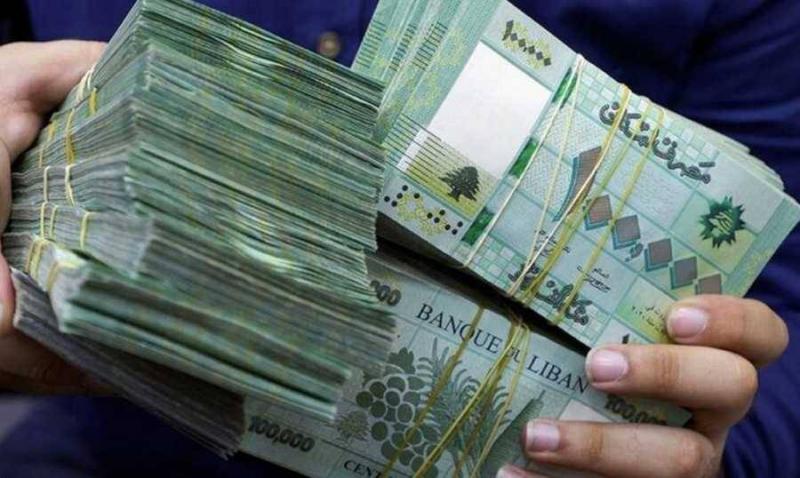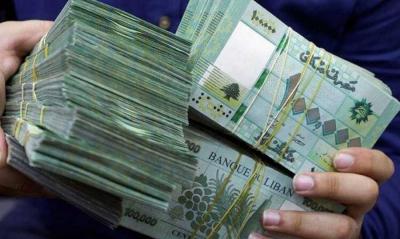An economy cannot function properly without several essential components, the most important being the balance between revenues and expenditures and the elimination of the cumulative deficit year after year. This is crucial to maintain the delicate balance between the state's financial stability and the stability of the national currency exchange rate. A failure in this regard would inevitably lead to a collapse rather than a voluntary choice, as noted in "An-Nahar."
However, ensuring financial balance between revenues and expenditures faces challenges, starting with the taxpayer's ability to bear more taxes and fees, and ending with the state's responsibility towards its citizens and the effective management of its collections and dues to meet its expenses and pay for services, support, and employee salaries.
The Lebanese state has relatively succeeded, presenting a striking model in the second half of 2023 of its capability when decision-makers resolve to assume their responsibilities in reforming its performance and successfully fulfilling its natural role. For the first time in possibly decades, despite the exceptional conditions facing the country and the economy in general, a financial surplus in state revenues has been achieved against expenditures. This came after the state and its public institutions activated their collections and raised some fees and revenues, resulting in income for the public treasury in both Lebanese pounds and fresh dollars that exceeded the targeted ceiling.
Following the depletion of the resources of the Central Bank of Lebanon and the decision by acting Governor Wassim Mansouri to stop funding the state from the Central Bank's pocket and prevent it from accessing the remnants of dollar reserves and bank deposits, the state officials were compelled to seek other avenues to finance government expenses and employee salaries in the administration, public institutions, and municipalities. This necessity intensified, especially after the Lebanese pound's market value plummeted, which caused the salary and wage item in the budget to multiply between six and seven times, with further promises of increases.
Sources following the situation confirm to "An-Nahar" that "the financial results achieved may not be entirely sufficient to restart the economy and raise it again after its downturn, but they certainly provide an opportunity to enhance faith in the state’s ability to fulfill its obligations toward its citizens if there is a genuine will to address the chaos in revenue collection and expenditure, close corruption loopholes, and achieve transparency and governance in its behavior and performance."
Thus, from the preliminary figures that remain subject to verification before they are officially released by the Ministry of Finance, it appears that the total revenues of the Lebanese treasury in 2023 (when calculated in US dollars at a rate of 89,500 pounds) amounted to approximately $2.7 billion (around 242 trillion pounds). According to the figures obtained by "An-Nahar," the total expenditures of the treasury in 2023 were about $2.3 billion (calculated in US dollars at the same exchange rate), corresponding to roughly 203 trillion pounds, indicating that the treasury achieved a surplus in 2023 of about 39 trillion pounds, exceeding $400 million in fresh funds. This surplus could, of course, turn into a deficit when factoring in debts and interest owed by the Lebanese state during 2023, especially the Eurobonds that the Diab government had previously announced it would stop paying.
The preliminary surplus achieved by the Lebanese state has contributed significantly to the monetary stability experienced by the Lebanese since the middle of 2023. The state’s achievement of a relatively significant primary surplus during 2023, according to informed sources, is attributed to the following reasons:
- A significant increase in treasury revenues since May 2023, when the customs dollar was calculated at the Sayrafa platform's rate.
- Expenditure in 2023 was in accordance with the 2022 budget (the twelve-month basis), which was based on a rate of 1,500 pounds per dollar. Therefore, the expenditure was limited, and the government was forced to provide studied cash advances to secure the expenses of the Lebanese army, military forces, fuels, and to initiate the school year. Despite these cash advancements, the treasury achieved a significant surplus despite the exceptional and difficult conditions in Lebanon.
- The Central Bank of Lebanon's cessation of lending to or supporting the state forced the treasury to tighten its expenditures.
It is noteworthy that half of the treasury's revenues in Lebanese currency were collected in cash, agreed upon between the Ministry of Finance and the Central Bank to control liquidity, manage it well, and achieve monetary stability. More than $300 million in fresh dollars was also collected in 2023, mostly from port and airport revenues. A significant portion of treasury expenditures went towards salaries and wages and transportation allowances for the public sector, while another portion was allocated for support, particularly for medications and purchasing fuel for Electricité du Liban (especially in the first half of 2023), with some funds also earmarked for diverse cash advances, particularly for the Ministries of Defense, Interior, Education, and others.
It is known that treasury expenditures included all state expenses, including those spent from the account known as the SDR and cash advances that exceeded 30 trillion Lebanese pounds (noting that the approved cash advances exceed 70 trillion pounds, but only 30 trillion were spent).
However, economic expert Dr. Eli Yeshoua considered that the increase in treasury revenues is merely the result of a currency adjustment. He argues that "the collection is still selective and does not include all taxpayers; we are still far from the principles of equality and tax justice as not all taxpayers in Lebanon pay their tax obligations or even public service fees, compounded by the fact that some state administrative offices that generate substantial revenues for the treasury, such as real estate and mechanical departments, remain dysfunctional. These factors persisted in 2023, confirming that the state's revenues of $2.7 billion are not related to good collection practices but rather to the correction of the exchange rate.
Regarding expenditures, Yeshoua noted, "If the revenues were calculated based on an exchange rate of 89,500 pounds, which reflects the real exchange rate, then the question is: Were the same principles applied to expenditures, especially public sector salaries and retirees' compensations? In other words, were the salaries valued in dollars as they were before the financial collapse, or were they paid based on the exchange rate of 89,500 pounds? He concludes that the figures indicating revenue increases were achieved at the expense of significant cuts in public sector salaries and in servicing the public debt due to state bankruptcy and the near-total absence of investment-type expenditures.




